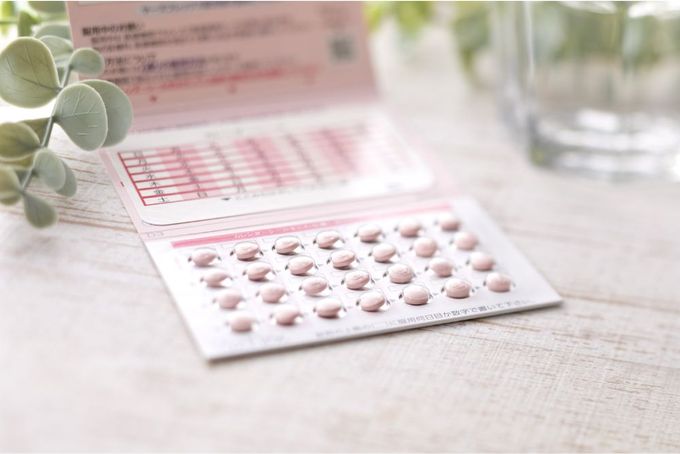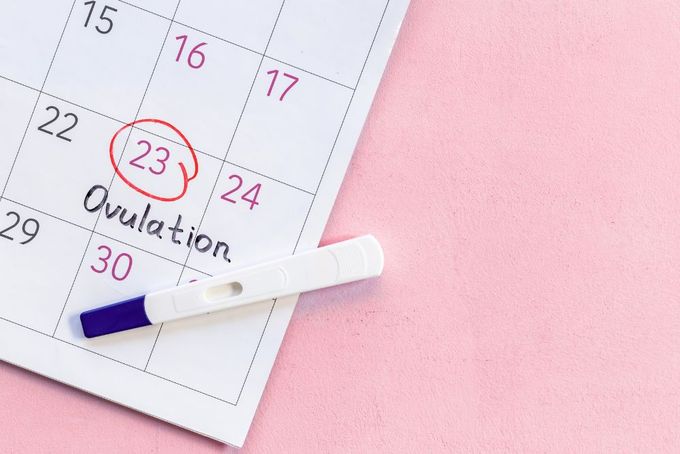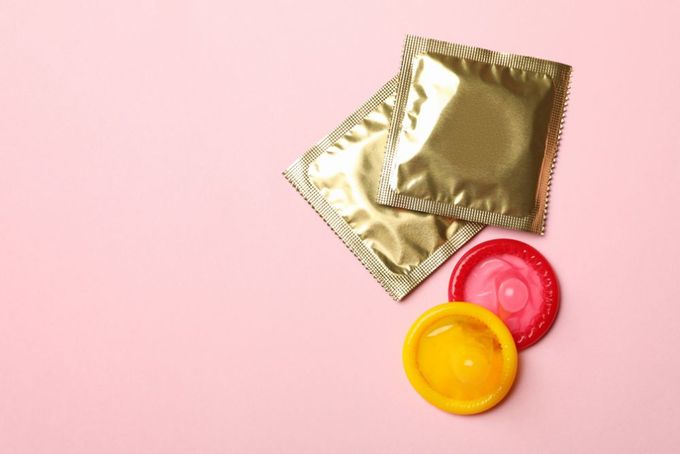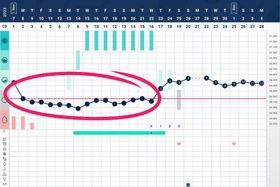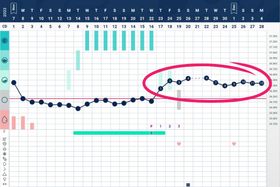What Is the Pill Made Of?
Updated June 20, 2025
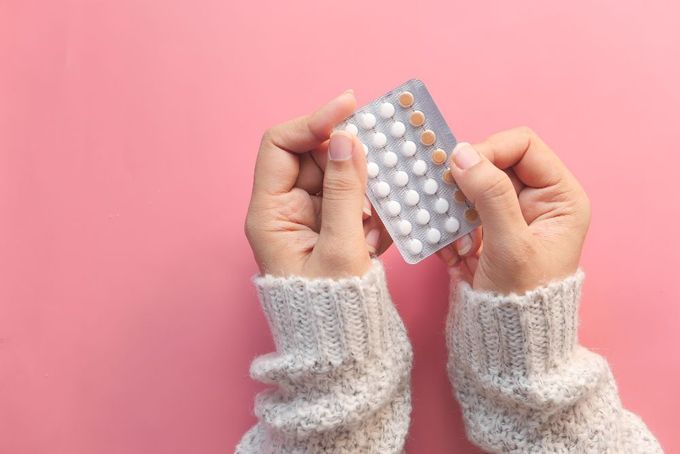
One of the most common discussions we see in our Facebook groups and in the areas of the internet where the Tempdrop team hangs out is concerns about what the pill is and how its effects are similar, or different, from those of your natural cycle hormones. It’s something most providers don’t discuss before (or after) putting you on hormonal birth control. So today, we’re going to talk about it!
What’s in the pill?
There are actually a few different types of hormonal birth control pills. The biggest difference in the types is that some contain estrogen and progestin, while others are progestin-only. Estrogen is a generic term for a group of female steroid hormones (made of three hormones: estrone, estradiol, and estriol). But what is progestin?
Progestin is a synthetic version of the naturally-occurring progesterone hormone found in the female body (dominant after ovulation and before the beginning of the next cycle). It loosely mimics natural progesterone: it binds to the same receptors, and some of its effects are similar (1). However, its chemical makeup actually makes it closer to testosterone and other androgens (male hormones) than to progesterone. We’re not going to go into the details of this here either, but you can search the internet for a diagram of each of those three to compare them if you want to see the similarities and differences.
Understanding the history of hormonal contraceptive pills.
When hormonal birth control was first released in 1950 (though it wasn’t widely available until the 1960s), the pills produced contained relatively high amounts of estrogens and progestin. It was intended to prevent pregnancies and, less commonly, married women could use it to keep a regular, predictable period.
Over time, it’s become much more common for providers to prescribe hormonal birth control for all sorts of concerns in women’s bodies, not just for contraception. The amount of each hormone in the different versions of “the pill” has also decreased significantly since it was first developed. When the original pill was first developed, there was no known way to replicate progesterone, so progestin was created and used in its place as the closest option. We do now have ways to create bioidentical progesterone, but notably we don’t use it in birth control. (2)
Why does progesterone vs progestin matter?
While they both act on the same cells and tissues, the messages these hormones send can be vastly different. Here are a few key points:
- Progestin-only contraceptive pills are more likely to cause mood and anxiety disorders than combination pills, and both of those have higher instances of mood and anxiety disorders than those not taking hormonal contraceptives (3).
- Progestins increase the risk of breast cancer with each year they are used (4&5).
Let’s take a look at a little chart below comparing progestin and progesterone.
| | Progesterone | Progestin |
|---|---|---|
| Breast cancer | No relationship (5) | Increases risk (4) |
| Mood | Calming & relaxing | Depressive |
| Androgen relationship | Anti-androgen | May mimic adrogens (6) |
| Sleep | Promotes healthy sleep (7) | May cause insomnia/sleep disturbances because of constant small dosage (7) |
As you can see, both of these hormones affect some key aspects of being able to function at your best, and progesterone seems to win out as far as which provides the consistent benefits (at least in the female body).
Do you ovulate on the pill?
Generally, the answer to this question is no. The primary goal of contraceptive pills is to impede and prevent ovulation, thus preventing conception. Does that mean that nobody ever ovulates on the pill? Of course not - hormonal birth control, like basically any drug, does not work 100% of the time. There are also plenty of rules around using the pill as a contraceptive (taking it at the same time every day, not missing a single pill, being aware of drug interactions, etc.) that make it less effective if not taken exactly as directed.
Why is ovulation important though?
Well, ovulation is becoming more and more accepted as a sign of health8. Irregular ovulation is an early sign of other issues in the body, and balancing those issues can result in fixing the cycle back to its normal rhythm.
Ovulation also allows our bodies to make our natural hormones, rather than relying on synthetic ones that don’t have the same effects. As discussed above, progesterone is mainly produced after ovulation, and progesterone has profoundly good impacts on the body as a mood stabilizer, calmer, and so much more.
Overall, the benefits of natural hormones from our cycles without using synthetic not-so-similar hormones often outweigh the benefits of using hormonal contraceptives. This is especially true when we have accurate, reliable ways to prevent pregnancy without having to disrupt those hormones: barrier methods like condoms, a sponge with spermicide, or our favorite - fertility awareness (made easier than ever using Tempdrop)!
These methods have varying levels of reliability.
- Male condoms have a 98% efficacy rate for preventing pregnancy when used every time and correctly (9).
- Double-check, instructor-taught symptothermal methods of fertility awareness boast a 98.4-99.6% (depending on the study) success in preventing pregnancy (10).
- Hormonal contraceptive pills have an efficacy of 93% (standard usage) to 99% (perfect usage) in comparison.
So why give up the better option hormone-wise when you can have reliable contraception without hormonal disruptions?
If you’d like to learn more about progesterone, progestin, and hormonal birth control, here are the links to the studies and articles we’ve referenced:
- https://www.ncbi.nlm.nih.gov/books/NBK563211/
- https://journalofethics.ama-assn.org/article/history-oral-contraception/2000-06
- https://pubmed.ncbi.nlm.nih.gov/27680324/
- https://www.ncbi.nlm.nih.gov/pmc/articles/PMC4706804/
- https://www.ncbi.nlm.nih.gov/pmc/articles/PMC7156851/
- https://www.ncbi.nlm.nih.gov/pmc/articles/PMC8261488/
- https://www.ncbi.nlm.nih.gov/pmc/articles/PMC8504351/
- https://www.ncbi.nlm.nih.gov/pmc/articles/PMC5730019/
- https://www.cdc.gov/condom-use/
